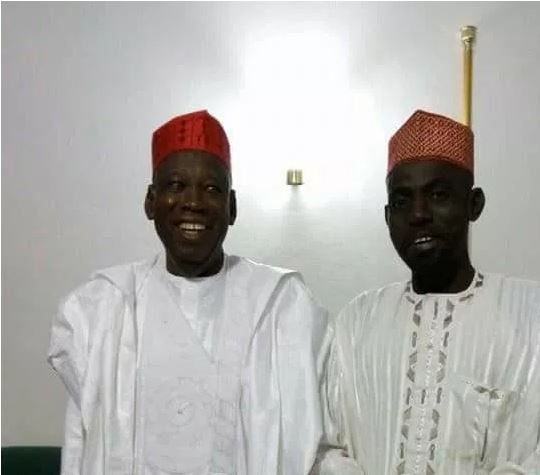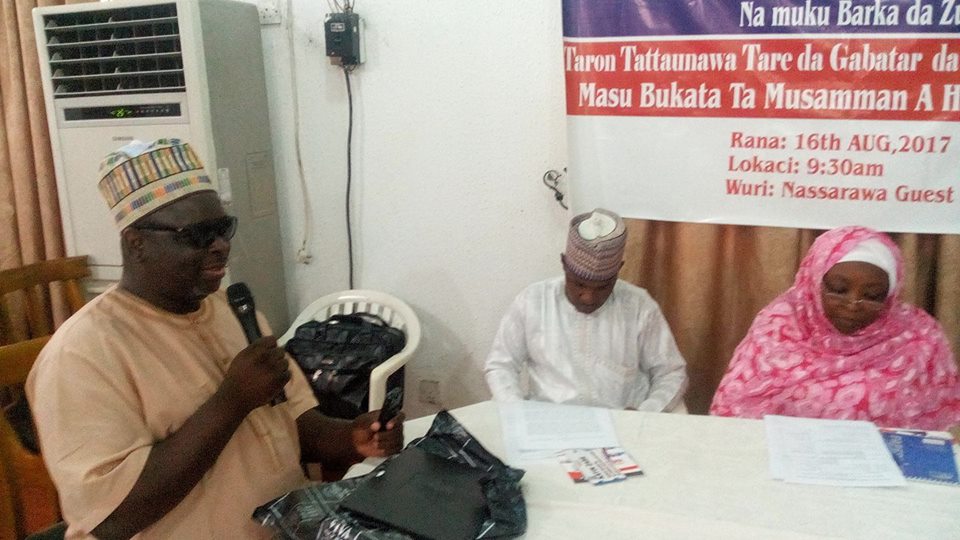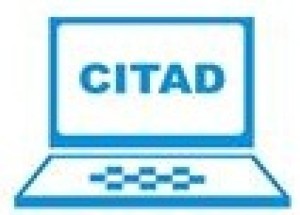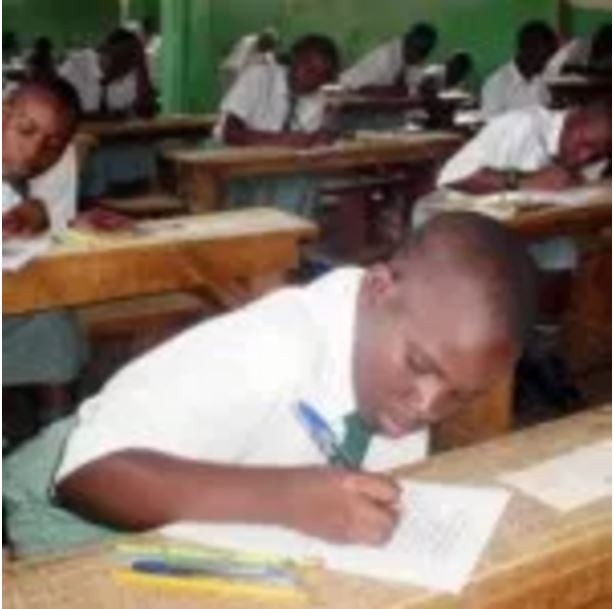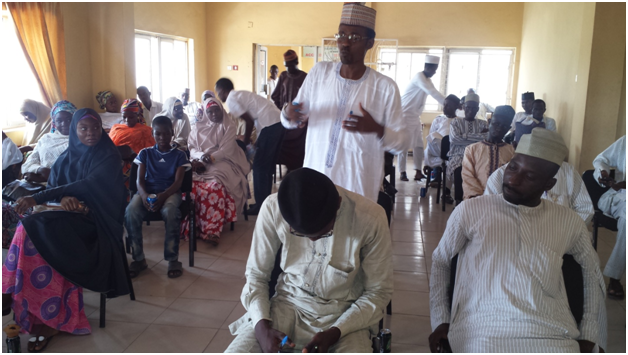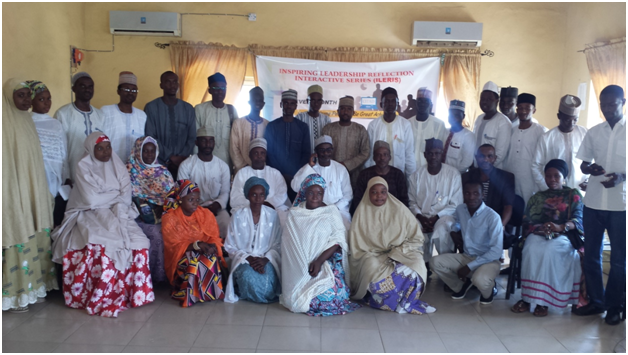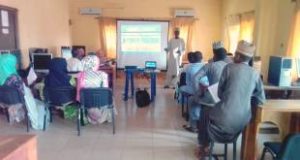By Sagiru Ado Abubakar.
The right to participate in election through voting and being voted for is one of the most visible dividends of democracy that civilized societies facilitate to every politically matured individual, eighteen years and above, without prejudice to his or her socio-political status and condition of disability. This right is recognized and expressly provided for in the Nigerian Constitution alongside key international human rights instruments, such as the United Nations Convention on the Right of the Person with Disability (CRPWD) and the UN Charter on Human Rights to which this country is a signatory. Unfortunately, in Nigeria, due to poor management of the political process and particularly the voting day machinery, majority of People with Disabilities (PWDs) are often excluded from participating in the election processes. Since the attainment of political independence there has been an apparent dearth of data on the participation of PWDs in elections as the numerous electoral bodies have not thought it wise to maintain such information at any level. Notwithstanding, various cluster of PWDs have consistently participated in election and presented diverse forms of challenges at polling stations from one election to the other. But more importantly, these electoral supervisors, political parties and voting public have not been able to fashion any form of response, no matter how rudimentary, to expand the political space to include PWDs in the election processes in Nigeria.Representing Northwest Zone of the country, the Center for Information Technology and Development (CITAD) under a project that has been implementing since 2015 titled “Strengthening Citizen Engagement in the Electoral Process†with support of ACTIONAID, Nigeria and the UKAID Department of International Development (DFID) engaged a consultant and hosted an interactive workshop with representatives of People with Disabilities (PWDs), representatives of Independent National Electoral Commission (INEC), Political Parties, Ministry of Youth and Social Development (MYSD), the Ministry of Education (MOE), the Nigerian Police Force (NPF), Civil Society Organizations (CBOs), Local Government Authorities (LGAs) and National Orientation Agency to harness the felt needs of PWDs for full participation in the electoral processes in the Northwest part of the country, and how those needs might be actualized. The aim of this is to articulate the recommendations obtained from the consultation and the workshop into a demand charter that the disable communities, development practitioners, policy makers and other stakeholders could leverage on to advocate for their enhanced participation in all phases of the election processes in Nigeria.On Wednesday 16th August, 2017 CITAD organized another workshop with the same stakeholders at Nassarawa Guest Inn, Kano with purpose of presenting the PWDs Charter that has been produced by the consultants across Nigeria’s six geo-political zones to the stakeholders. Malam Isyaku Garba, CITAD’s Project Coordinator made the opening remarks at the workshop. Then, in the local language, Malam Umar Muhammad summarized the PWDs Charter. He said that this charter seeks to expand the opportunities for mainstreaming all clusters of PWD into all aspects of the electoral processes. He said that the charter recognizes two levels of challenges, general and specific.
The general were as follows:a. INEC should employ qualified PWDs and saddle them with the tasks of ensuring the participation of this constituency in the political processes, in electoral preparatory process, as election observers and mobilization of PWDs to participate in elections.b. INEC and the political parties should develop clear and simplified voting guidelines for PWDs; made into Braille for the visually impaired, audios for the blind and television-based sign language for the deaf. PWDs should be engaged to perform these roles.c. INEC should ensure that polling stations are visible and accessible for the all PWDs. d. INEC should ensure that the name of all registered PWDs are verified on the voters register and printed in bold for easy identification during elections. e. INEC should endeavor to make the voting process easier by sorting out their logistics issues to ensure prompt arrival to the polling stations with voting materials on election daysf. INEC should, before the elections sensitize its staff that they would encounter PWDs and prepare them for the type of voting-related challenges they might have to help them surmount; there are skilled PWDs that INEC could use as facilitators.g. Political parties should ensure that PWDs are appointed into their administrative structures and offered opportunities to contest and be voted for on their platformsh. Political parties should include members of all PWD clusters in their campaign teams for electioni. Workshop should be organized regularly to enlighten the government, political parties and relevant stakeholders on strategies for integrating PWDs into electoral processes of Nigeriaj. INEC should ensure the amendment of section 56 of the Electoral Act 2015 to include individuals with other form of disabilities as a matter of urgencyk. INEC should ensure that all categories of PWDs are always contacted for their contributions before changes to the electoral processes are affected before  and during elections l. INEC should convene workshops for a review of the electoral provisions to further respond to the needs of PWDs as need arisesm. INEC should provide for the nature of disability on the voter registration cards of PWDsn. INEC should ensure that PWDs are not charged any form of fees to register with political parties and be eligible for electionso. Security agencies should ensure for the protection of voters at polling stations, especially for PWDsp. Security agencies should not allow themselves to be used to harass and intimidate PWDsThe specific challenges were:
a. People with physical disabilities further required that: in Nigeria, some PWDs clusters as people with leprosy live as communities, therefore, INEC and political parties should endeavor to identify and site polling station within or around these communities to improve access to voting.
b. People with Albinism further required that:
1. INEC should conduct research on how to make polling stations friendlier with a view of providing people with albinism with the best voter experience
2. INEC and the political parties should consult members of this cluster for advice on colors that are appropriate for design of voting materials and party logos respectively to enhance access to voter information.
c. People with visual impairment further required that:Â 1. INEC should ensure that Braille ballot papers are provided for this cluster during elections. The Braille materials can then be deployed to several other locations within a local government areas for members of this cluster to once for all available offices (namely: State House of Assembly, House of Representatives, the Senate and the President, etc) in one fell swoop.
2. INEC and political parties should design special voter education for the visually impairedd. People with leprosy further required: INEC should provide this cluster with specialized ballot boxes or equipment to capture their votese. People with Hearing Impairment further required:
1. INEC should carry out research to ascertain the commonly used sign language in Nigeria and engage/train people to provide that sing language at polling stations.
2. Electronic media should provide for sign language interpreters while broadcasting on INEC and political parties IEC materialsAfter reading the challenges, participants were allowed to make observations during the event. Malam Najib Bashir Musa, representative of the Director Kano State Independent Election Commission (KANSIEC), drew the attention of the participants that only the Senates, Members of the House of Representative and their counterpart at the states level have the right to make amendment in the constitution and the Electoral Act.  He urged the participants to make regular follow-ups to these bodies for the articulation of the PWDs charter.  Hajiya Suwaiba Adamu Salisu, representative of the National Orientation Agency (NOA), expressed her gratitude to CITAD for supporting the development of the PWDs charter and assured that their agency will include the PWDs charter in their report and forward to presidency as they are working under the presidency. Malama Hauwa Buhari, Desk Officer, INEC, Kano Office, said that she has been assigned to take incident reports from PWDs on election in person or over the phone in order to address their request and complaints but none ever confront her office with such claims. Yahya A. Yahya member of the PWDs from Kano municipal cluster, complained about the nature of work of the NOA and INEC. He said that the work of these agencies is not penetrating the PWDs communities as far as election is concern. He thanked CITAD for helping them to speak out their mind. Maimuna Uba Dala, a female PWD member, said that when employing PWDs in the election related activities female members of PWDs should be included. Yahya Adamu Uba challenged KANSIEC that, in 2014 our members were asked to apply for the KANSIEC job but after sending the application letters we were denied given the opportunity. Suleiman Abdullahi Rano, member of the PWDs cluster from Rano local government regretted to see INEC PWDs Desk Officer was not a person with physical challenge, saying that PWDs communities have people with different skills that can serve the job. Malam Aminu Amadu, lamented that it is that they are shunning away from election activities because they are allow to wait for long under the sun and everybody knows that the nature of their body does not endure excessive heat condition. Bashir Muhd Bashir, Senior Correspondent, Blueprint Newspaper, described the media as fourth realm of the estate and assured the PWDs communities for their support in all their endeavors. In response to next step of action concerning the PWDs Charter, the participants agreed to establish a powerful PWDs cluster with representation of members from six project local governments and conduct two hours meeting with the consultant, (Malam Ibrahim Abdulkarim) at the end of today’s workshop for the way forward. Malam Ahmad Abdullahi Yakasai made the closing remarks and vote of thanks at the end of the workshop.








